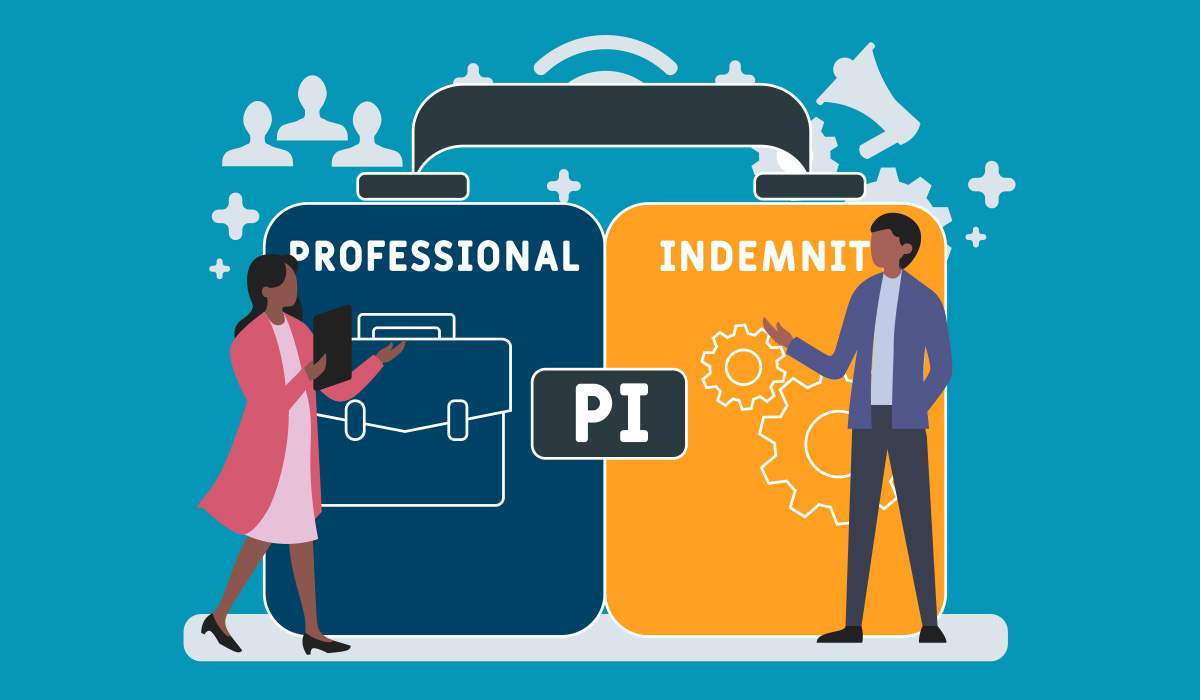Joined by PII experts from Howden Insurance Brokers and Paragon Brokers, we explore some of the most pressing topics for conveyancers when it comes to professional indemnity insurance.
Preparing for PII renewals: How technology can support law firms
Professional Indemnity Insurance is essential for law firms and the preparation when a renewal is due can be a time-consuming and complicated process. From gathering documentation and evidence to support your renewal process, you’ll be familiar with the administrative efforts that accompany renewal season.
We spoke with PI experts to better understand what firms should be aware of when it comes to preparing for their PII renewal. Joined by Jenny Screech, consultant at Howden Insurance Brokers and Ryan Senior, senior vice president at Paragon Brokers, we explore some of the most pressing topics for conveyancers when it comes to professional indemnity insurance.
Why is conveyancing considered a high-risk area for PI Insurers?
Conveyancing is deemed the highest risk area of law more so than any other due to having the greatest number of PII claims against law firms. This applies to both the number of notifications, as well as the overall cost of claims. Historically, claim data shows there were rises in the early 1990s and 2008 following economic turbulence.
In 2023, with increasing interest rates to avoid recession, and the falls in the property market, the outlook is that conveyancing continues to be exceptionally high risk for PI insurers.
Jenny comments, “Underwriters consider conveyancing work to be high risk and assign it a high rating factor in their pricing models. They also ask more questions about conveyancing than any other area of practice. The number of questions has increased over the years, with new questions being added from time to time in response to claims issues that underwriters have seen or emerging risks they are concerned about. It is important that firms invest time in responding to the proposal form questions and ensure that the information they are providing in response to these questions is both accurate and addresses the issue.”

What role can technology play when it comes to PII renewals for law firms?
Firms who are using technology to digitise their conveyancing workflow can access benefits that can support their PII renewal process. While technology alone will not ensure firms access renewed insurance or guarantee reduced premiums, it does have a role to play in making the preparation for renewal easier and quicker.
Ryan shares that the approach to using conveyancing software to support PII applications is to help present a law firm to underwriters as a preferred risk. “The use of conveyancing software helps brokers to present a positive picture about the performance of the firm, both in terms of historical risk management controls after the software was implemented and future risk controls given its continued use,” he says.
It’s important to remember that underwriters are not experts in the use of conveyancing technology. So it’s a good idea for firms to include a brief outline of the benefits that their chosen digital solution delivers from a risk management perspective.
Jenny says the explanation doesn’t need to be lengthy, but instead a couple of bullet points to ensure that underwriters are left in no doubt regarding the advantages of the technology that a firm has.
In a climate of declining transaction volumes and a potential recession, Jenny says that PII insurers are going to be watching closely and those firms that engage in conveyancing work need to be ready for this.
“Underwriters are aware that when the property market falters there has historically been an increase in PII claims arising from conveyancing work. At the next PII renewal it will be important that firms explain the strategies they have been deploying to manage risk and streamline processes. To the extent that technology has been and continues to be a part of this, then now is definitely the time to tell underwriters about it."
Are there any technologies that PI Insurers are focusing on at renewal?
When it comes to preparing your renewal application, you may be wondering if there are specific technologies that underwriters are looking at. While there’s no one-size-fits-all approach, certain digital solutions are now being referenced on some PII proposal forms. But don’t only focus on those technologies.
Jenny recommends firms highlight other technology that hasn’t been referred to on the forms in a covering letter or document. “The fact that it is not referred to on the proposal form does not mean that your underwriter won’t be interested,” she says.
Both Jenny and Ryan agree that ID and source of funds checks are on the radar for insurers. Imposter vendor claims have led to some significant payments, so firms who are using robust client ID verification and financial checking solutions should highlight their use of this technology. Using technology such as biometric ID checks with NFC-read data can go a long way to ease underwriters concerns regarding risk management during the customer due diligence process.
Ryan adds that, “Prominently informing potential clients that the firm uses a conveyancing software system with sophisticated ID checks is likely to deter fraudsters from using the firm in the first place.”

What about digital audit trails?
Can digital audit trails help firms when it comes to PII renewal? Taking a balanced approach is key here. Ryan says that the value of audit trails shouldn’t be overemphasised when considering the bigger picture of technology’s role in professional indemnity applications. He does however note that, “PI insurers place significant emphasis on effective risk management and the use of conveyancing software can help to evidence a working model that adopts best practice.”
Where audit trails are primarily advantageous is making light work of collating information and evidence of your processes, approach to your conveyancing practice and how you manage risk. This is a time-consuming process for firms and places significant administrative burden on firms in the lead up to their PI renewal, so technology can minimise the drain on resources.
“If firms can use technology to run reports that deliver the information requested by insurers, then that will not only save time but also enable firms to reassure underwriters regarding the accuracy of the information,” acknowledges Jenny.
Can law firms use technology to help reduce PI premiums?
There is significant evidence that Lexcel/CQS compliance has a measurable, beneficial impact on PI claims according to the team at Paragon Brokers. This is evidenced by some underwriters agreeing to discount premiums for firms who have achieved these accreditations.
Technology can make evidencing your compliance with CQS protocol easier. While reduced premiums aren’t a certainty, the benefits of the technology, from saving time in the preparation to helping you manage risk, are worth it.
How is role of technology likely to evolve over the next 5 years between PI insurers and conveyancing?
Digital solutions continue to develop at pace in the conveyancing space, a response to everchanging fraud risk and updated regulations.
Jenny suggests that underwriters are becoming more interested in the technology firms are using to manage their processes and associated risk. "Advances in technology being used by the firms they insure to assist with the management of risk and prevent errors that lead to PII claims will become a focus of underwriters. We would expect this to lead to more questions regarding the specific tech tools that a firm has.”
Want to know more about how you can be better prepared for your PI renewal? Watch this helpful session with Jenny Screech of Howden Insurance Brokers to get ahead.



